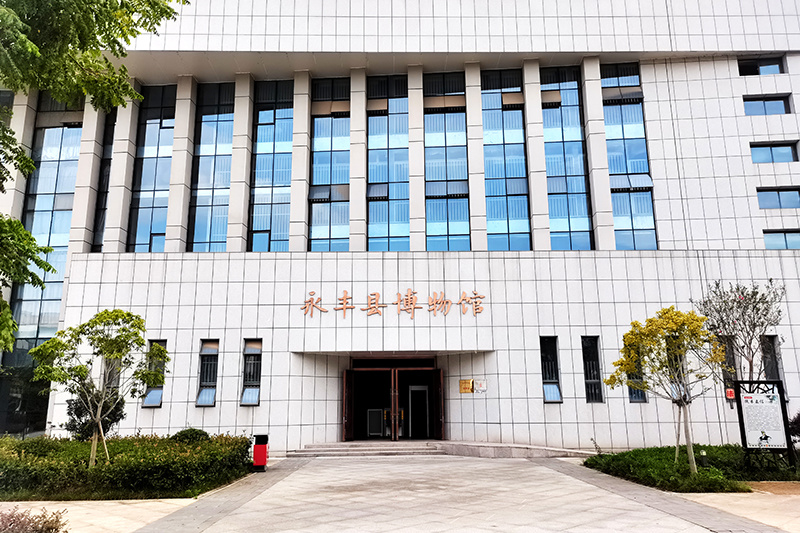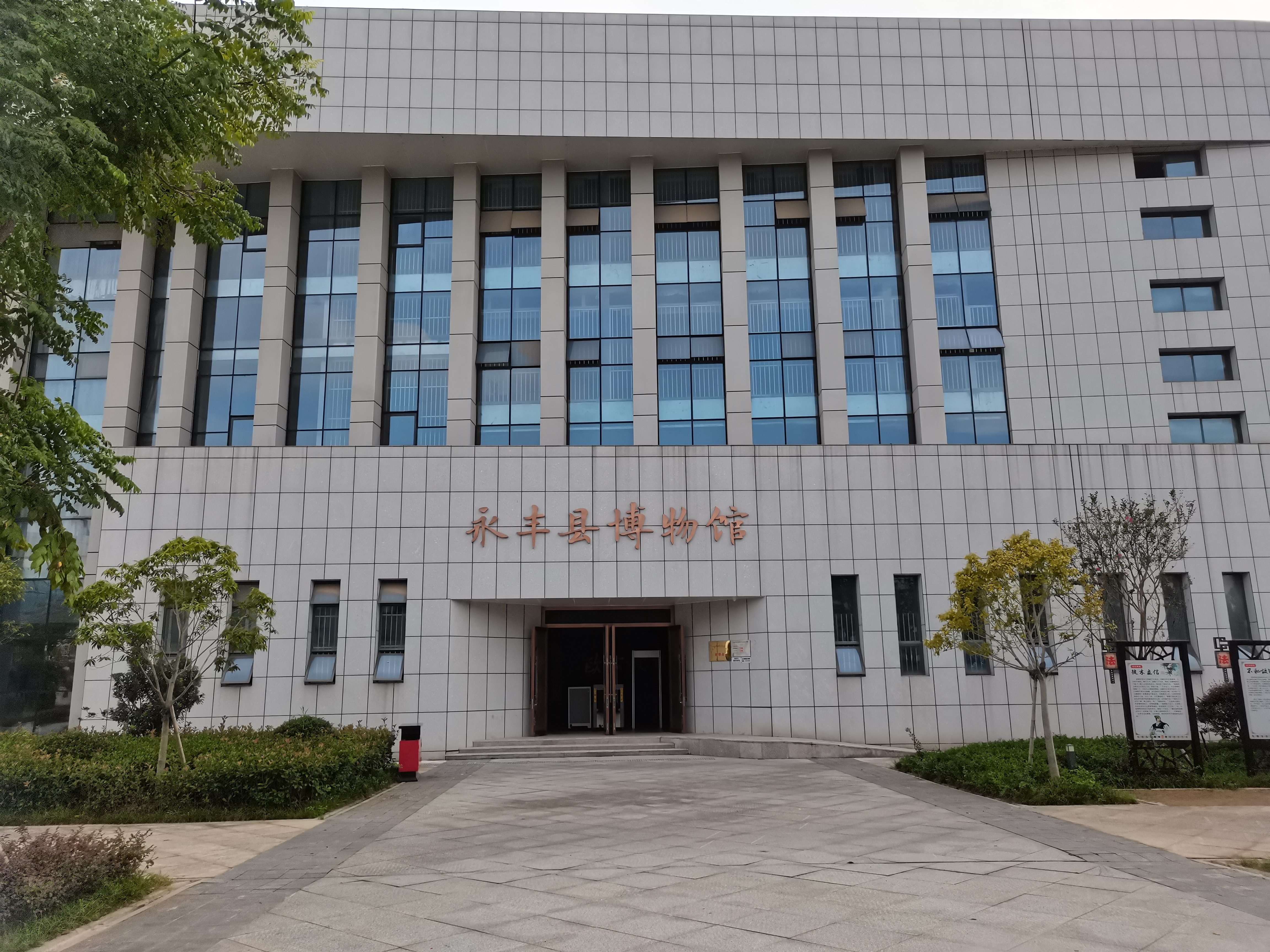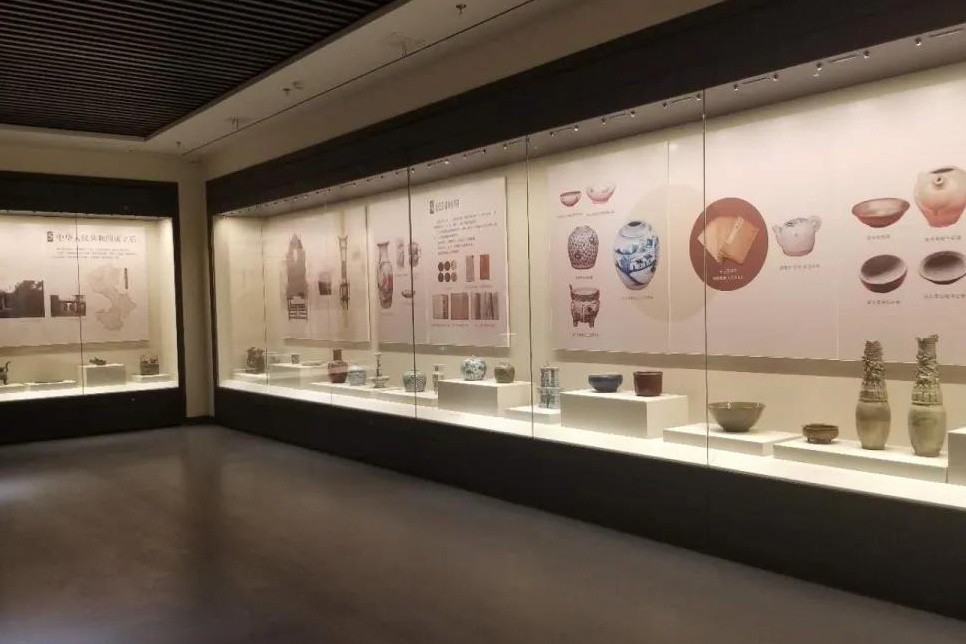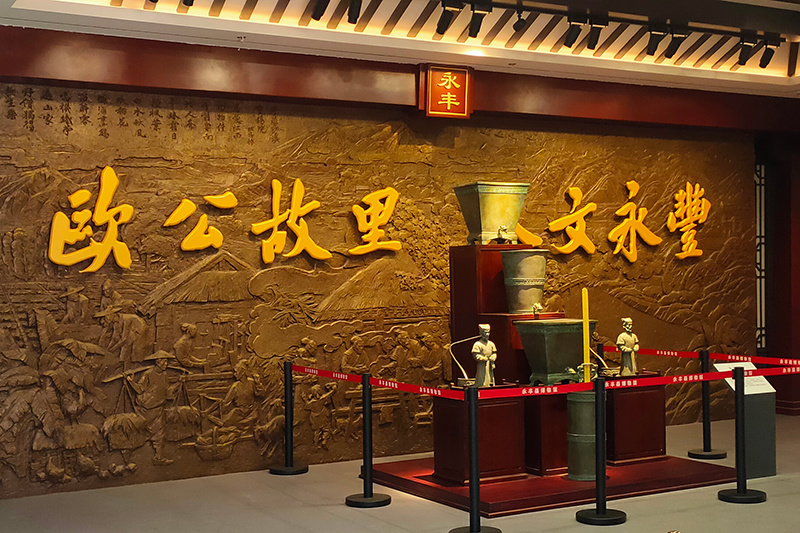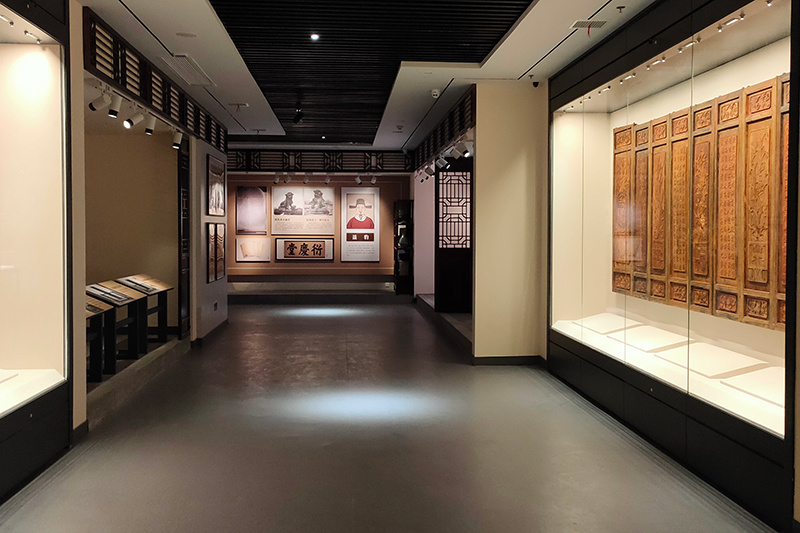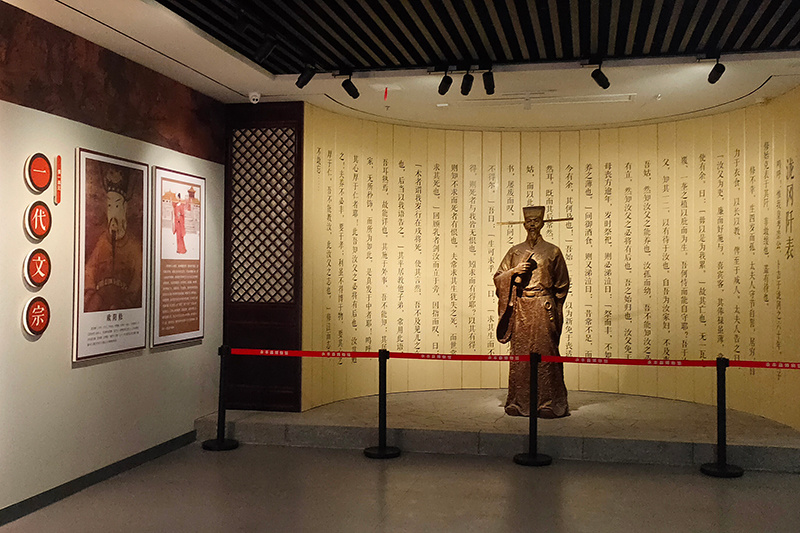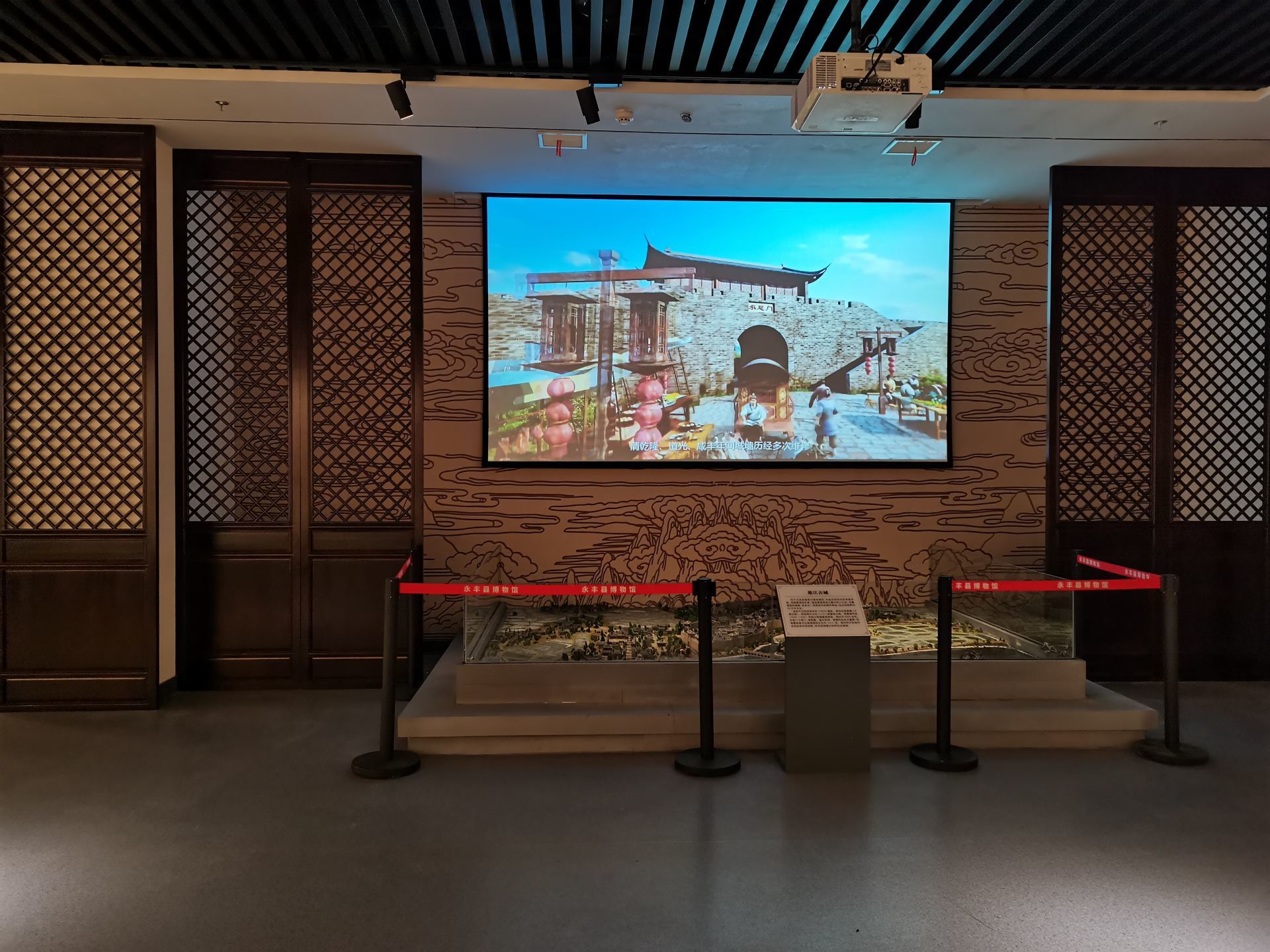Statutes of Yongfeng County Museum
category: Overview of the Museum
category: System publicity
Release time:2022-12-16
Yongfeng CountyMuseumArticles of Association
Objective Record
Preamble
Chapter I General Provisions
Chapter II Organize the unit
Chapter III Council
Chapter IV Management
Chapter V Staff
Chapter VI Collection display, protection, management, disposal
Chapter VII Asset Management and Use
Chapter VIII Information Disclosure
Chapter IX Termination and Disposal of Remaining Assets
Chapter X Amendment of Articles of Association
Chapter XI Supplementary Provisions
Sequence Words
Yongfeng CountyThe museum was established in1984It is a modern museum integrating cultural relics collection and protection, tourism, academic research and social education.
Chapter I General Provisions
Article 1 In order to promote and ensure the museum's legal operation and scientific development, standardize the various business work of the museum, and ensure the realization of public cultural services and public trust functions, in accordance with the the People's Republic of China Cultural Relics Protection Law, the Interim Regulations on the Registration and Administration of Public Institutions, and the Museum Regulations "And other relevant regulations, formulate this charter.
Article II The name of the museum isYongfeng CountyMuseum.
Article III The host unit of this museum isYongfeng CountyBureau of Culture, Radio, Television, Press and PublicationThe registration authority isYongfeng CountyPublic Institution Registration Administration.
Article 4 The museum's source of funding isFinancial assistance, start-up funds1250000 yuan.
Article V The museum is a non-profit institution with independent legal personality, enjoys and performs corresponding rights and obligations in accordance with the law, and independently assumes legal responsibilities.
ARTICLE VI The purpose of the museum is: as a non-profit permanent organization that serves the society and its development and is open to the public, for the purpose of education, research, and appreciation, to collect, protect and display to the public the witnesses of human activities and the natural environment.
Article VII The business scope of the museum is:
(I) collection, preservation, protection and research of cultural relics, specimens, documents and works of art;
(II) holding various exhibitions and carrying out social education activities;
(III) dissemination and promotion of historical, scientific, cultural and artistic knowledge;
(IV) other business scope of the museum in accordance with this charter.
Chapter II Organize the unit
Article 8 Rights of organizers:
(I) the purpose and business scope of the museum;
(II) the establishment of the first Council of the museum;
(III) appoint relevant directors to the Council of the Library;
(IV) nominate, appoint and remove the curator and deputy curator;
(V) review the draft articles of association and draft amendments to the articles of association;
(VI) and approve the work report of the Council of the Library;
(VII) support the Board to perform its duties in accordance with relevant laws and regulations and these Articles of Association;
(VIII) supervise the operation of the library;
(IX) perform the responsibilities of the organizer specified in laws, regulations and other provisions.
Article IX Obligations of the organizer:
(I) support the museum to run its own museum in accordance with laws, regulations, rules and the articles of association, and stop or eliminate acts that infringe or hinder the exercise of its autonomy;
(II) provide the museum with stable growth of funds and related resources, and provide the necessary guarantee conditions and necessary policy support;
(III) safeguard the legitimate rights and interests of the museum, support and guide the development of the museum;
(IV) other obligations stipulated by laws and regulations.
Chapter III Council
Section 1 Composition and responsibilities of the Council
Article X The Council is the decision-making and supervisory body of the museum, and the Council reports to the organizer.
Each term of the Council 5Year.
Article 11 Members of the Council of the Museum 5name, by appointment, selection or selection, by the organizing unit to perform the appointment and removal procedures, its source and quota, the method of generation is:
Representative of the organization or government department1name, appointed by the organizing unit or relevant government department;
social public representative1 The names, including representatives of various stakeholders, experts and spectators, are selected by the organizers for the community;
Representative of the Museum 3Name, of which the curator, the head of the party organization for the ex officio director, the rest2 The name is selected by the museum.
Council SecretaryOne person, responsible for daily contact, meeting records, manuscript drafting, file management, etc. The office does not have the right to speak, propose and vote.
Article 12 The basic responsibilities of the Council:
(I) ensure the continuity of the aims, scope and objectives of the Museum;
(II) encourage active public participation in all operational activities of the museum;
(III) provide appropriate support to ensure the present and future safety and maintenance of collections and artifacts in accordance with the Museum's purpose and scope of operations;
(IV) ensure that museums serve the widest possible public service;
(V) support museums to objectively and accurately interpret and disseminate knowledge about collections and artifacts through research;
(VI) monitor and approve systems and supervise the implementation of such systems in accordance with the aims and scope of the museum's operations;
(VII) review the museum's medium-and long-term development plan, review and approve museum goals and ways to achieve them, and supervise the implementation of museum plans;
The (VIII) ensures the financial stability of the museum by reviewing, approving and supervising the budget and financial reports, making decisions on the budget expenditure and raising funds for the museum;
The (IX) elects the chairman and vice-chairman, reviews the candidates of the curator and deputy curator, and evaluates the work of the management;
(X) ensure that museums are adequately staffed to carry out museum functions;
(11) to consider the internal salary distribution plan, internal and branch establishment plan of the museum;
(12) three months before the expiration of the term of office of the current Council, it shall be responsible for the formation of the next Council and submit it to the organizing unit for deliberation;
(13) To perform the duties of the Council as specified by laws, regulations and other provisions.
Article 13 The Council shall submit annual work reports and thematic reports on major issues to the organizers. If the resolution adopted by the Council is required to be submitted to the relevant departments for approval or filing in accordance with the administrative authority, it shall be submitted to the relevant departments for approval or filing.
Article 14 The first council is organized by the organizer; when the council is re-elected, the organizer and the current council are jointly organized to elect new directors according to procedures.
Section II Director
Article XV Each term of office of a member is the same as the term of office of the Council. At the end of his term of office, he may be re-elected according to the needs of his work, but the term of office shall not exceed two terms. The age of the directors appointed by the organizing unit or government department shall not exceed60 years old, social age in principle not more65years;
Article 16 Directors are non-paid social welfare positions and are not allowed to receive remuneration due to their qualifications; transportation, communication and other related subsidies arising from the performance of director duties can be charged from the library's funds in accordance with relevant regulations.
Article 17 Director qualifications:
(I) familiar with and abide by the relevant laws and regulations and national policies;
(II) are enthusiastic about social welfare, love cultural and cultural undertakings, and can safeguard the rights and interests of the museum and social reputation;
(III) have certain qualifications and good reputation in the industry, and can express their opinions objectively and independently;
The (IV) has no demerit or administrative sanction, no record of illegal crime or breach of trust, and has full capacity for civil conduct.
Article 18 The Director shall have the following rights:
(I) to attend meetings of the Council and have the right to speak, propose, vote, elect and be elected;
(II) the right to know, suggest and supervise the meetings of the Council and major issues of the Library;
(III) propose the convening of an interim council meeting;
Other rights conferred by the (IV) Council.
Article 19 The director shall perform the following obligations:
(I) abide by relevant laws, regulations and this charter, exercise rights within the scope of the director's duties, and earnestly perform their duties;
(II) promptly reflect the opinions and suggestions of all sectors of society to the museum, and extensively guide and strive for social resources to support the development of the museum;
(III) to participate in the board meeting and related activities on time, comply with and implement the resolutions of the board meeting;
(IV) comply with other obligations imposed by the Council.
Article 20 The directors shall not have the following circumstances during the performance of their duties:
(I) to disclose or use the confidential information of the library without authorization;
(II) seek improper benefits for himself or others by virtue of his status as a director;
(III) interfere with the normal operation of the Museum in a manner contrary to the provisions and spirit of the Articles of Association;
(IV) engage in other acts inconsistent with the status of the director.
Article 21 A director may resign during his term of office. A written application for resignation shall be submitted to the Council, and the membership may be terminated only after the Council has voted on it. The resignation of the appointed director shall be subject to the consent of the appointing party.
Article 22 The Council shall terminate the membership of a director in accordance with the procedures in the following circumstances:
The (I) does not attend the meetings of the Council for two consecutive times or for a total of three times during the term of office without justifiable reasons;
The (II) is unable to continue to perform the duties of the director due to his or her health and work;
The (III) fails to perform the duties and obligations of the director, or harms the public interest or the interests of the library;
(IV) violation of laws and regulations, be investigated for administrative or criminal responsibility;
(V) other circumstances as stipulated by laws and regulations and the Articles of Association.
Article 23 If the appointed or elected director needs to be replaced due to any change during the term of office, the appointed party or the elected party shall propose a candidate, which shall be replaced according to the original method and procedure of the director after being voted and approved by the Council.
Article 24 If there is a vacancy in the director, the vacancy shall be filled in time according to the original method and procedure. The term of office of the new member shall be for the remainder of the current member's term.
Section III Director
Article 25 Board of Directors1Name, Deputy Director1Name. The chairman is nominated by the organizer and elected and appointed by the board of directors; the vice-chairman is nominated by the chairman and elected and appointed by the board of directors.
Article 26 The chairman shall exercise the following functions and powers:
(I) guide the Council in fulfilling its mandate to support the Museum in achieving its development goals;
(II) determine the topics of the Council, convene and preside over the meetings of the Council;
(III) supervise and inspect the implementation of the resolutions of the Council;
(IV) sign relevant documents on behalf of the Council;
(V) laws and regulations and other powers granted by the Council.
Article 27 The vice-chairman shall assist the director-general in his work. The chairman may entrust the vice chairman to act on his behalf.
Section IV Council Meetings
Article 28 Council meetings are generally convened and presided over by the chairman. Council meetings shall be held at least twice a year, and all members shall be notified in writing ten days before the meeting. Meetings of the Council may be held only if more than 2/3 members are present.
Article 29 When the chairman deems it necessary, or when there is a joint proposal of more than 1/3 directors, he may convene an interim meeting of the board of directors and notify all directors in writing five days before the meeting.
Article 30 The Council implements democratic centralism. By ballot, each member shall have one vote. The general matters of the board of directors must be approved by more than half of all directors, and the major matters must be approved by more than 2/3 of all directors before they take effect.
Significant matters are as follows:
(I) drafting and revising the articles of association of the museum;
(II) review the medium-and long-term development strategy and development plan of the museum;
(III) review of major financial matters of the Library;
(IV) review the internal salary distribution plan of the museum;
(V) to review the institutional setup plan of the museum;
(VI) review curator and deputy curator candidates;
The (VII) shall consider and decide on the appointment and dismissal of the members of the Council of the Library.
Article 31 Minutes of meetings of the Council shall be made. The directors and recorders present at the meeting shall sign the minutes of the meeting. If a resolution is formed, the minutes of the meeting shall be made and reviewed and signed by the directors present at the meeting. The minutes of the meeting of the Council shall be properly kept as important archives of the Library.
Article 32 The minutes of the meeting of the Council shall state the following:
(I) the directors attending the meeting, the non-voting delegates, the absent directors and the reasons for their absence;
Date and place of the (II) meeting;
Main topics and agenda of the (III);
(IV) the main points of the speeches of the participating directors;
(V) the voting results of the voting matters submitted;
(VI) other elements that the Council considers should be included in the records of the meeting.
Article 33 If the resolution of the board of directors violates the provisions of laws, regulations or the articles of association of the unit, resulting in losses to the interests of the museum, the directors participating in the resolution shall bear the responsibility. The director may be relieved of liability if it is proved that he objected at the time of the vote and is recorded in the minutes of the meeting.
Chapter IV Management
Article 34 The management of the museum is the executive body of the council and is responsible to the council. It is composed of the curator, the person in charge of the party organization, the deputy curator and other core management personnel. The curator responsibility system is implemented.
Article 35 The curator and deputy curator shall be nominated by the organizing unit and, after deliberation and approval by the Council, appointed and removed by the organizing unit according to the authority of cadre management; the person in charge of the party organization shall be appointed and removed by the organizing unit in accordance with the relevant procedures.
Article 36 Management performs the following duties:
(I) organizations implement the resolutions of the Council and accept the supervision of the Council;
(II) the preparation of museum development plans, organize business activities, the implementation of the annual work plan and other daily work management;
(III) prepare and organize the implementation of budget and other financial assets management;
(IV) in accordance with the relevant regulations to do a good job in staff recruitment, post promotion, personnel management, internal or branch establishment, salary distribution and other work;
(V) do a good job in the safety of cultural relics and ensure the safety of visitors and activities in the museum;
According to the needs of the work, the (VI) may propose to set up advisory committees or professional committees such as development planning, salary and assessment, exhibition display, collection and protection, etc.
Article 37 As a candidate for the proposed legal representative, the curator shall obtain the qualification of the legal representative of the library after being approved and registered by the registration management authority.
The Director shall exercise the following duties:
The (I) is fully responsible for the management of the business, personnel, finance, assets, solicitation and other aspects of the unit;
(II) organize and formulate the establishment plan and basic management system of the museum;
(III) conduct its work under the auspices of the Council in accordance with its resolutions;
(IV) other duties stipulated by laws and regulations and the Articles of Association.
Article 38 The deputy curator assists the curator in his work. If the curator is temporarily unable to exercise his powers for any reason, the deputy curator shall be appointed to exercise his powers on his behalf.
Chapter V Staff
Article 39 The staff of the museum is composed of professional and technical personnel, management personnel and workers.
Article 40 The museum in accordance with the relevant provisions of the personnel management of public institutions to manage the staff. The specific measures for recruitment, employment, assessment, promotion, rewards and punishments shall be separately formulated and implemented by the library or the relevant functional departments authorized by the library in accordance with the law.
Article 41 The staff and workers shall enjoy the following basic rights in accordance with the provisions of laws, administrative regulations, rules and the Articles of Association:
(I) carry out the work required by the post, and receive the corresponding salary according to the relevant provisions according to the post responsibilities and contribution degree;
(II) put forward opinions and suggestions on museum affairs, and participate in democratic management through the staff congress;
(III) fair access to work, study and exchange opportunities for personal development;
(IV) in the work performance, work ability and other aspects of fair evaluation, fair access to all levels of various types of awards and various honorary titles;
(V) express objections to relevant decisions involving their vital interests such as professional titles, treatment, and disciplinary actions, file appeals, and request processing;
(VI) other rights prescribed by laws, administrative regulations, rules, articles of association, rules and regulations of the museum or the contract of appointment.
Article 42 The staff and workers shall perform the following basic obligations in accordance with the provisions of laws, administrative regulations, rules and the Articles of Association:
(I) abide by the Constitution, laws and museum professional ethics, and constantly improve ideological and political awareness and professional level;
(II) cherish the reputation of the museum, safeguard the interests of the museum, and abide by the rules and regulations of the museum;
(III) to work diligently, fulfill their duties, and complete the tasks required by the post;
(IV) other obligations stipulated by laws, administrative regulations, rules, articles of association and the rules and regulations of the museum or the contract.
Chapter VI Collection display, protection, management, disposal
Article 43 The museum adheres to the public trust responsibility of the museum, and all collections are permanent collections, which are legally preserved and used in accordance with relevant laws and regulations.
Article 44 The museum shall establish complete collection accounts and archives, distinguish the grades of cultural relics, set up separate cultural relics archives, establish a strict management system, and report to the competent department of cultural relics for the record.
Article 45 The legal representative of the museum is responsible for the safety of the collection, and the legal representative and collection management personnel shall complete the collection transfer procedures before leaving their posts.
Article 46 The museum holds exhibitions and carries out social education and public services. Its theme and content should conform to the basic principles established by the Constitution and the requirements of safeguarding national security and national unity, promoting patriotism, advocating scientific spirit, popularizing scientific knowledge, spreading excellent culture, cultivating good fashion, promoting social harmony and promoting social civilization and progress.
Article 47 The museum shall not engage in the commercial operation of cultural relics and other collections. Engaging in other commercial activities shall not violate the purpose of running the museum or harm the interests of the audience.
Article 48 After the termination of the museum, the disposal of the collection shall be handled in accordance with the provisions of the relevant laws and regulations on the protection of cultural relics.
Chapter VII Management and use of assets
Article 49 The legitimate assets of the museum are protected by law, and no unit or individual may embezzle, divide or misappropriate them.
Article 50 The use of the museum's funds should be consistent with the purpose and scope of business of the museum.
Article 51 The library implements the unified national accounting system for public institutions and accepts the supervision of taxation, accounting, auditing and other competent departments in accordance with the law.
Article 52 The salary, social security and welfare of the staff of the museum shall be implemented in accordance with the relevant provisions of the state.
Article 53 Before the change of the board of directors and the legal representative of the museum leave office, an economic responsibility audit shall be conducted.
Chapter VIII Information Disclosure
Article 54 The museum promises to disclose the relevant information that should be disclosed in a true, complete and timely manner in accordance with relevant laws, regulations, policies and registration management agencies.
Article 55 The main forms of information disclosure: unit annual reports, staff meetings, bulletin boards and related news media and websites.
Chapter IX Termination and Disposal of Remaining Assets
Article 56 The museum shall be terminated under any of the following circumstances:
The (I) is revoked by decision of the examination and approval authority;
Merger and division of (II);
The (III) shall be terminated for other reasons according to law.
Article 57 Before applying for cancellation of registration, the Council shall, under the guidance of the organizing unit and relevant authorities, establish a liquidation organization to carry out liquidation work. No activities other than liquidation shall be carried out during liquidation.
Article 58 All the collections and cultural relics of the museum shall be counted and sealed by the competent government departments, and may be allocated to other museums and other institutions for public welfare purposes, and shall not be used for liquidation and debt repayment.
Article 59 After the liquidation work is completed, a liquidation report is formed, which is approved by the board of directors and submitted to the organizing unit for review and approval, and then applies to the registration management authority for cancellation of registration.
Article 60 Other remaining assets after the termination of the museum shall be disposed of in accordance with relevant laws and regulations and the articles of association of the museum under the supervision of relevant government departments.
Chapter X Amendment of Articles of Association
Article 61 The articles of association of the museum shall be amended under any of the following circumstances:
The matters stipulated in the articles of association of the (I) are inconsistent with the provisions of the revised national laws and administrative regulations;
The contents of the (II) articles of association are inconsistent with the actual situation;
(III) other circumstances in which the Council deems it necessary to amend the Articles of Association.
Article 62 The amendment to the articles of association adopted by the board of directors shall be submitted to the registration administration authority for approval and filing after examination and approval by the organizing unit. If the registration matters of a public institution as a legal person are involved, an application for change of registration shall be filed with the registration administration authority.
Chapter XI Supplementary Provisions
Article 63 The Articles of AssociationFrom the date of approvaleffective.
Article 64 In the event of any discrepancy between the provisions of the Articles of Association and the laws and regulations, the provisions of the laws and regulations shall prevail. Involving the registration of legal persons of public institutions, the contents of the "Certificate of Legal Persons of Public Institutions" approved and issued by the registration management authority shall prevail.
Article 65 Interpretation of the Articles of Association OwnershipInYongfeng CountyMuseumPavilionCouncil.
RELATED INFORMATION
2023/12/29

